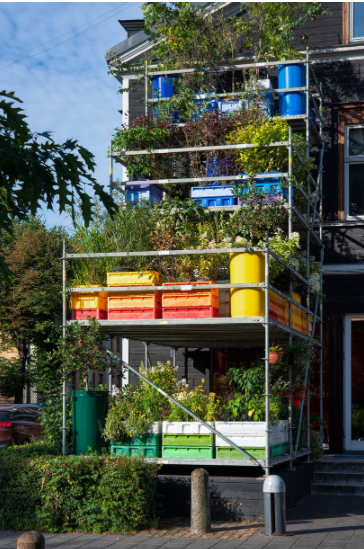
Looking for examples of sustainable agricultural systems at scale. That is, they were able to feed a civilization in a steady-state for centuries.
I can think of two. Can you point me to others?
I can think of two. Can you point me to others?
The two I'm thinking of were highly context-dependent ecologically and required very tight governance.
These were not ancient systems that stayed in ecological balance by feeding a small number of people on enormous amounts of land. This allowing them to farm plots of land into exhaustion and then move to a new plot while the previous plot rebounded over decades.
That method of farming in balance with the ecology doesn't provide much in terms of lessons for contemporary city-based civilizations.
The first is the Incan system of guano-management tied to an agriculture that sustained the largest ancient civilization in South America provided food security for a population of
more than 8 million.
more than 8 million.
This system starts with a freezing Antarctic ocean flow called the Humboldt Current hitting the continental shelf and blasting nitrogen-fixing phytoplankton up to the surface where it is eaten by anchovies, swelling their populations.
The anchovies become a feast for seabirds, Peruvian boobies and cormorants. Those birds convert the anchovies into nitrogen-rich guano that they deposit on nearby islands, most notably the Chincha Islands.
The nitrogen-rich guano powers the growth of Incan agriculture. As the population grows, the Incans adopt some of the world's first conservation regulations.
Guano is rationed out to farmers on the mainland to ensure that it is only used up at replacement rate. Meanwhile hunting the seabirds that transform nitrogen-rich anchovies into useful fertilizer is banned.
The penalty for stealing guano or killing seabirds is death. If you think the Chesapeake Bay nutrient-management regime is tough, try fucking around with an Incan guano bureaucrat.
This completely fell apart in the 1800s when an independent Peru began exporting guano to a nitrogen-starved Europe which set in motion imperialist take over of the Chincha Islands and the islands were mined to exhaustion.
thebreakthrough.org/articles/remem…
thebreakthrough.org/articles/remem…
The second system that I have in mind is rice farming in Bali. Rice farming in Bali has been maintained in the same area now for about 1000 years uninterrupted.
The traditional system in Bali is completely fascinating and a culture of interdependent governance has been absolutely essential to sustainability.
But the system rests on a unique ecology, like the Incan model that isn't replicable.
Balinese rice farming starts with irrigation from upstream volcanic lakes providing water that is rich in minerals, including phosphorus and potassium (P&K of NPK).
Farming rice in flooded paddies is augmented by the presence of nitrogen-fixing algae (and in some cases aided by nitrogen depositing ducks and other critters).
So the system starts with endogenous, renewable or functionally inexhaustible, sources of NPK fertilization, the bottleneck in other systems.
The cultural systems of equitable and sustainable water management and group/system-wide pest control are to complex to get into in a Twitter thread.
Long story, short: Through small organized groups of neighboring farms and the larger clusters organized through local water temples and finally by an apex temple for the whole system, decisions are made to ensure downstream farms get equitable allocations of water ...
... expansion of irrigation is sustainable, rationing is carried out during times of water scarcity, and rolling fallowing is coordinated by the community to flood or to starve pests.
It's similar to a very large, tightly knit co-op or co-op of co-ops. These are individual small farmers but they are not autonomous. They are woven into a coherent system that functions emergently almost as a single very large farm.
When the Green Revolution came to Bali, it helped, then it was a disaster --- throwing the system out of balance, and then there was a course correction and synthesis.
For more information on this, I recommend Stephen Lansing's 'Priests and Programmers: Technologies of Power in the Engineered Landscape of Bali'.
amzn.to/2UPuyHG
amzn.to/2UPuyHG
If a book is too much, here is a 52-minute documentary that I highly recommend.
If 52 minutes is too much, here is a 15 minute TEDx Talk. (trigger warning: David Suzuki makes an appearance)
Are there other examples of these kinds of mass-scale steady-state systems?
~fin~
#fafdlstorm
#fafdlstorm
This thread can be found here.
threadreaderapp.com/thread/1330561…
threadreaderapp.com/thread/1330561…
A friend on Facebook suggested the Nile River Delta. Which certainly drive Egyptian civilization and had a renewable source of nutrients.
Between the instability of over-flooding and drought; and the simplicity of the system, it seems to offer even less in the way of replicable lessons for building modern systems.
But I think it fits the bill.
• • •
Missing some Tweet in this thread? You can try to
force a refresh






